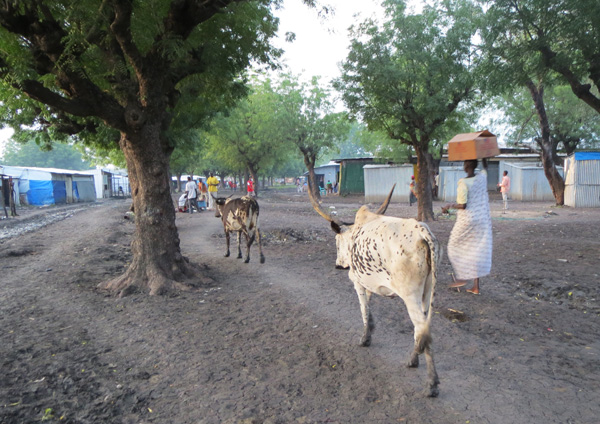
Thirteen people were killed in a remote part of South Sudan’s embattled Jonglei state this month in an attack, the nature of which quickly became contentious. Were those killed members of the militia group headed by David Yau Yau that has sowed insecurity that has left at least 100 South Sudanese soldiers dead since August, as the SPLA claims? A local official in Pibor, which has been at the epicenter of clashes, said that the victims were all civilians (pdf).
The incident is just the latest in a string of violent episodes in South Sudan’s largest state over the past year, marked by deadly cattle raids and retaliatory attacks, operations by local militias, and a government-led disarmament campaign particularly rife with abuses against one community. All told, violence in Jonglei in 2012 accounts for well more than half of all people killed in the country and nearly 80 percent of its displaced people.
Traveling to Jonglei state during a relative lull in the clashes, the Enough Project sought to examine the South Sudanese government’s responses to the violence and its efforts to prevent further bloodshed, especially during the upcoming dry season when communities migrate in search of water and pastureland. The findings are published today in a new report titled, “’Sometimes We See Ourselves as Apart’: South Sudan’s Response to Violence in Jonglei.”
An accompanying video pinpoints some of the root causes of violence in the state:
The report provides a historical backdrop to the recent violence and describes the government’s approaches to disarmament and reconciliation between the adversarial communities. Through interviews in the state capital of Bor and in the Lou Nuer and Murle centers of Pibor and Akobo with local officials, elders, youth, cattle keepers, religious leaders, activists, SPLA and police officers, NGO staff members, and local residents, Enough aimed to comprehensively assess which efforts to stem the violence are working and which are falling short. The report also includes an extensive list of recommendations, derived from field research and consultations in Juba, targeting the South Sudanese government, the U.S. government, and other key international actors.
Some of our most interesting findings include:
— While there is a range of views about how long the calm will last, few people the Enough Project spoke to in Akobo deny that the disarmament campaign has been the primary factor contributing to the relative peace in the Lou Nuer areas in recent months. By and large, residents and local leaders in Akobo say that they support the government’s effort to collect weapons, explaining that the region will never have peace as long as civilians have guns.
— One factor in the growing distrust among the Murle toward the army is the seeming lack of accountability for alleged abuses at the county level. SPLA officials claim that accused soldiers are being held accountable, but local leaders are skeptical. “Why not visibly show that they are doing all they can in terms of accountability?” said one leader. “Why are the abuses continuing if [the SPLA] are punishing [the soldiers]?”
— As the international community considers how to engage with the government going forward, it should take into account perceptions of the process on the ground. Even nonmilitary contacts in South Sudan frequently expressed to Enough a defiance of the criticism of the disarmament campaign and an assertion that the government would not be deterred from removing guns from civilians by force if necessary. Some local leaders even urged harsher punishment against members of their community who were found not to comply with disarmament.
— At a peace conference held in Bor in May and attended by President Salva Kiir, representatives endorsed a detailed set of resolutions aimed at addressing root causes of insecurity in the state and the cyclical nature of the violence. There was broad consensus that compensation for past abuses must be set aside in favor of moving forward peacefully, with the exception of the return of abducted people. But the length of the resolutions and the lack of specificity in how—and by whom—these issues will be addressed are obstacles to implementation that have yet to be resolved.
— The Sudan Council of Churches has also initiated “Peace from the Roots,” a long-term, grassroots track aimed at creating the relationships necessary for sustainable peace among the communities. From Enough discussions with members of this grassroots network it is clear that local reconciliation efforts are still in their very early stages, with few residents beyond those personally involved in the initiative indicating familiarity with the process. So far the network has focused on grassroots engagement in respective communities. The next phase, where representatives from across communities will mix, is “risky” but also a necessary step, according to a member of the leadership committee.
Read the full report: “Sometimes We See Ourselves as Apart”: South Sudan’s Response to Violence in Jonglei
Photo: People and cattle walk down the main street in Akobo town (Enough / Laura Heaton)

